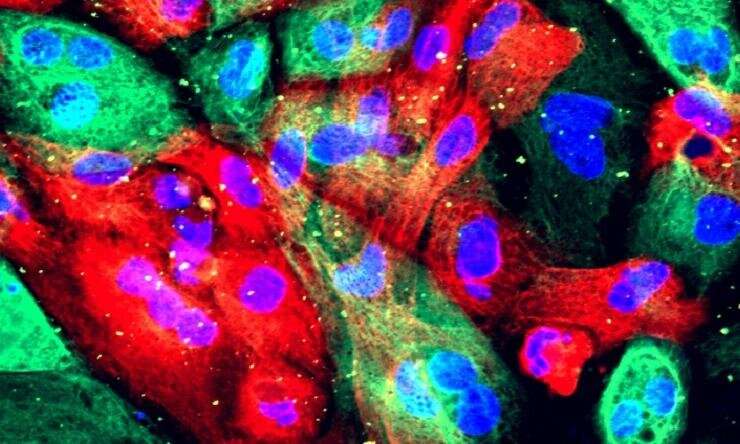Prostate cancer: Screening and treatment

Prostate cancer is one of the most common cancers in the world. While many prostate cancers grow slowly and remain localized, other types are aggressive and spread quickly. That's why Dr. Carlos Vargas, a Mayo Clinic radiation oncologist encourages regular screening. He says the goal of screening is to detect prostate cancer early, when it's still confined to the prostate gland and has the best chance for successful treatment.
"It's important to get adequate screening, and screening for prostate cancer is relatively simple. You can have a prostate-specific antigen, or PSA, test with your primary care doctor once a year, and with this, you can tailor adequate procedures based on your age and other risk factors," says Dr. Vargas.
The prostate-specific antigen test is a blood test used to measure the amount of prostate-specific antigen in your blood. High levels may indicate the presence of cancer. Other conditions also may increase this level. It's important to discuss with your health care professional if the prostate-specific antigen test is right for you based on your personal risk level and age.
Who is at risk?
Risk factors include age, family history and race. The most common age is around 50 or older.
If you have a blood relative who has or has had prostate cancer or a family history of genes that increase the risk of breast cancer—BRCA1 or BRCA2—or a strong family history of breast cancer, your risk of prostate cancer may be higher. In the U.S., prostate cancer is deadlier for Black men than men of other races, according to the Centers for Disease Control and Prevention. They are more likely to get prostate cancer and more than twice as likely to die from prostate cancer than other men.
"Early detection is very important. If we can find prostate cancer early, it is treatable and curable, " says Dr. Vargas.
Active surveillance
Not all prostate cancers need to be treated, says Dr. Vargas. Some cancers can remain under active surveillance.
"When we find very early prostate cancer, we can watch it for many years. And in case that prostate cancer becomes more aggressive, then we can treat it there. The problem is when you are not screened, and then you find a very aggressive prostate cancer that is still localized or it has already metastasized, in which case, the chances of controlling the cancer, curing you and saving your life are much lower."
In active surveillance, regular follow-up tests may be performed to monitor the progression of your cancer.
"That's why screening is very important and why we encourage screening for prostate cancer. It doesn't mean that you must be treated. If prostate cancer is found, we can then determine what is the most appropriate course of action for your prostate cancer based on your age and your risk group."
Treatment options
Along with active surveillance, a full range of treatments for prostate cancer is available, including radiation therapy; hormone therapy; cryosurgery; chemotherapy; and surgery, including robotic prostatectomy.
"One of the things that has really changed over the last few years is the management of radiation with patients with metastatic prostate cancer," says Dr. Vargas. "We have found that many patients with metastatic prostate cancer still benefit from radiation to the prostate."
"And we have also found that many patients who have just a few sites of metastatic disease, meaning that the cancer is not widely spread, can also benefit from aggressive treatment where we do a combination of radiation therapy and systematic therapy to put you back in remission where disease cannot be found, and extend your life."
Another radiation technique includes intensity-modulated proton b e am therapy with pencil beam scanning. Dr. Vargas says proton therapy is effectively used to treat patients with prostate cancer.
"It's a very localized treatment that allows us to treat the prostate, localizing the treatment to the prostate, hoping to minimize significant adverse events that may happen from the treatment," says Dr. Vargas.
Talk with your health care professional to learn more about prostate screening and if it's right for you.
2022 Mayo Clinic News Network.
Distributed by Tribune Content Agency, LLC.

















